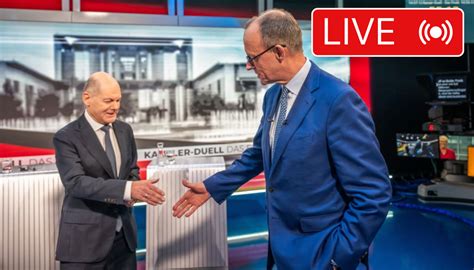German chancellor-in-waiting Friedrich Merz found himself at the center of a storm as Donald Trump’s tariffs sent shockwaves through Germany’s stock market. The repercussions were swift and severe, causing Germany’s main stock index to plunge by 10 percent before clawing back some lost ground.
In the wake of this financial turmoil, Merz emphasized the critical need for tax cuts and deregulation to bolster Germany’s economic resilience. With the specter of trade wars looming large on the horizon, Merz stressed that restoring competitiveness should be the cornerstone of coalition talks in these challenging times.
“The situation on the international equity and bond markets is dramatic and threatens to get worse,”
remarked Merz solemnly in response to Trump’s blanket import tariffs that have rattled global economic dynamics. The tremors of uncertainty reverberated across industries that form the backbone of Germany’s economy – from machinery and chemicals to vehicles.
As a nation heavily reliant on exports, particularly to key markets like the United States, Germany faces an uphill battle as its competitive edge erodes against a backdrop of escalating tariffs. The 20 percent tariff imposed by the Trump administration only served to compound existing challenges stemming from rising energy prices and other destabilizing factors.
Amidst this economic maelstrom, coalition negotiations between Merz’s center-right Christian Democrats (CDU) and their counterparts from the center-left Social Democrats (SPD) took on newfound urgency following national elections earlier in February. Despite securing a lead in voting outcomes, CDU fell short of clinching a majority mandate, catapulting Merz into intricate deliberations with SPD leaders to forge a viable government alliance.
“The market shock added new urgency to coalition negotiations,”
underscoring not just the gravity of economic concerns but also the necessity for swift political responses. In light of these developments, Monday saw an interlude in negotiations as stakeholders grappled with charting a course forward amidst evolving trade dynamics triggered by U.S. policy shifts.
Merz’s advocacy for fiscal prudence faced internal resistance when he signaled openness towards amending constitutional provisions to accommodate up to €1 trillion in fresh debt – a move viewed skeptically by certain quarters within SPD and Green Party ranks. However, his remarks on Monday sought to reaffirm CDU’s enduring commitment to fiscal rectitude even amid turbulent global tides reshaping economic landscapes worldwide.




Leave feedback about this